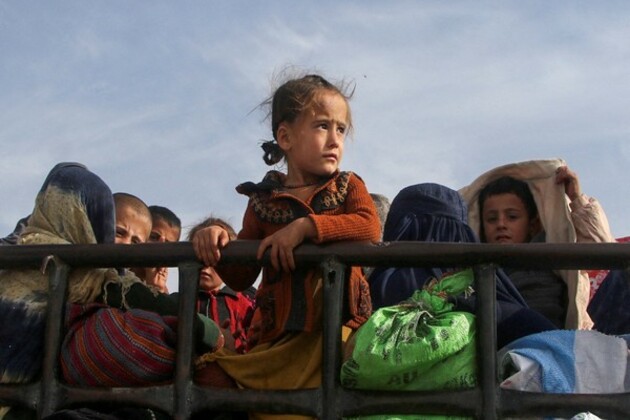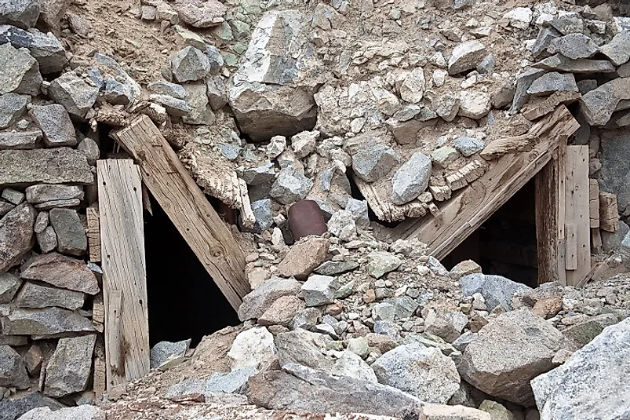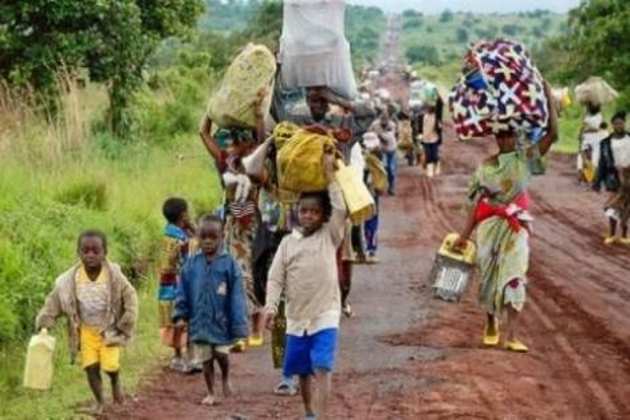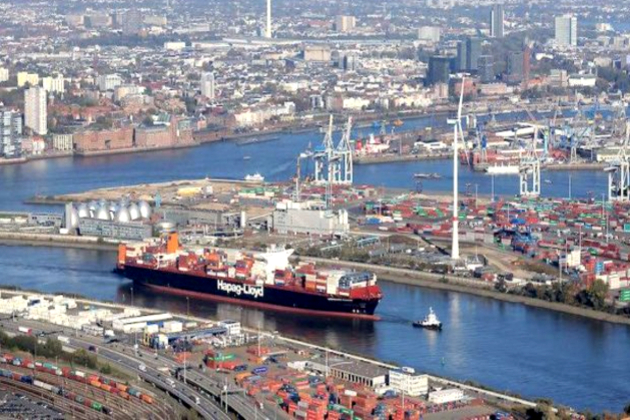Report shows rise in repatriation of Afghan citizens from Pakistan's Islamabad, Rawalpindi
ANI
19 Feb 2025, 16:38 GMT+10

Islamabad [Pakistan], February 19 (ANI): More than 18,000 Afghan nationals have travelled back to Afghanistan from Pakistan's Rawalpindi and Islamabad in January this year, with repatriations witnessing a rise in repatriations in the second fortnight of the month slightly higher than the first fortnight, Dawn reported.
According to the International Organisation for Migration (IOM), the deportation of Afghan citizens from the Islamabad Capital Territory (ICT) and Rawalpindi has witnessed a rise. Between January 16-31, 291 heads of households were interviewed through a flow monitoring registry (FMR) form, while 9,846 Afghan citizens who returned to Afghanistan were identified through border crossing points of Torkham, Chaman, Ghulam Khan, Badini, and Bahramcha.
At least 824,568 individuals have returned to Afghanistan since September 15, 2023, while 18,577 of this total has returned since January 2025, according to the IOM. Most of the Afghan returnees are people aged between 18-59 years and individuals aged between 5-17 years of age. Of the children aged below 10 years who crossed the border, 502 had received polio vaccination, Dawn reported.
According to the bi-weekly report, 10 per cent of the returnee households were women-headed households. During the same period, no-child headed households were recorded. More men than women returned during the said period. As per the report, fear of arrest (78 per cent) and inability to pay house rent (32 per cent) are the most common reasons mentioned for the return by the heads of households travelling back to Afghanistan.
Households also mentioned inability to pay household utilities (30 per cent), no employment (26 per cent), and communal pressure to return (9 per cent) as the reasons for the return to Afghanistan. According to the report, the fear of arrest and communal pressure to return have both increased in the past two weeks.
Meanwhile, 89 per cent of the Afghan citizens have mentioned family reasons as the reason for choosing their family destination and 67 per cent mentioned the availability of assistance in Afghanistan as a reason. At least 17 per cent of Afghan returnees hinted that they wanted to obtain nationality in Afghanistan.
During the interviews, most of the respondents reported finding income opportunities (98 per cent), arranging for livelihoods (89 per cent), resettlement in a new city (87 per cent), and shelter (71 per cent) as the most important challenges they could face after they returned to Afghanistan.
Some of the respondents said that the availability of medicine and health facilities (36 per cent), access to education (35 per cent), and availability of clean drinking water (32 per cent) as their primary challenges. Only a small number of respondents called security (8 per cent) a challenge, Dawn reported.
On average returnees pay USD 513 from their place of origin in Pakistan to their final desitnation in Afghanistan. The cost for travelling from their border to their final destination in Afghanistan (USD 86) is more than the cost from their place of origin to the border (USD 67), according to the report.
All Afghan citizens returning to Afghanistan moved with personal belongings. The report said, '97 per cent reported carrying cash, followed by household items (95 per cent) and productive assets (53 per cent).'
According to the report, the majority of returnees travelled from Balochistan (43 per cent), followed by Khyber Pakhtunkhwa (28 per cent) and Sindh (20 per cent). Some people came from Punjab (7 per cent) and Islamabad Capital Territory (2 per cent). The districts of origin in Pakistan are usually situated near the border, like Quetta (24 per cent) and Killa Abdullah (10 per cent), according to Dawn report.
Some of the people who returned to Afghanistan also came from Karachi (20 per cent) and Peshawar (19 per cent), which are located far away from the border in Sindh and Khyber Pakhtunkhwa, respectively. In Afghanistan, most returnees also travel to provinces that are located closer to the border, including Kandahar (32 per cent), Nangarhar (23 per cent) and Kabul (13 per cent). (ANI)
 Share
Share
 Tweet
Tweet
 Share
Share
 Flip
Flip
 Email
Email
Watch latest videos
Subscribe and Follow
Get a daily dose of Africa Leader news through our daily email, its complimentary and keeps you fully up to date with world and business news as well.
News RELEASES
Publish news of your business, community or sports group, personnel appointments, major event and more by submitting a news release to Africa Leader.
More InformationInternational
SectionMine collapse in western Mali kills at least 43, mostly women
BAMAKO, Mali: A tragic mine collapse in western Mali, West Africa, has claimed the lives of at least 43 people, mostly women, an industry...
US Navy confirms collision of aircraft carrier near Egypt
WASHINGTON, D.C.: The U.S. military operates 11 aircraft carriers, and any serious damage that forces one out of service could put...
Zelensky sidelined as Trump takes Putin position on war
As we approach the third anniversary of the Russian invasion of Ukraine, a monumental shift is taking place that might just lead to...
US State Department alters website wording on Taiwan independence
TAIPEI, Taiwan: The U.S. State Department has revised its official website's fact sheet on Taiwan, removing a previous statement that...
UN warns of worsening humanitarian crisis in eastern Congo
GENEVA, Switzerland: The humanitarian crisis in eastern Congo is worsening, with around 350,000 displaced people left without shelter...
Texas residents near SpaceX to vote on creating ‘Starbase’ City
McALLEN, Texas: A county in Texas has approved an election that will let people living near SpaceX decide whether to create a new city...
Business
SectionDecember sales growth in US revised up to 0.7% from 0.4 %
WASHINGTON, D.C.: Retail sales in the U.S. fell by the most in nearly two years in January, likely due to cold weather, wildfires,...
Standard and Poor's 500 closes at new all-time high
NEW YORK, New York - U.S. stocks moved modestly higher on Wednesday with the Standard and Poor's racking up a new all-time closing...
Bundesbank chief warns US tariffs could hurt Germany for years
FRANKFURT, Germany: Germany faces significant economic risks from potential U.S. trade tariffs, which could dampen growth for years...
Italy’s Termoli plant shifts from EV batteries to hybrids
MILAN, Italy: Stellantis announced this week that it will begin producing hybrid vehicle components at its Termoli plant in southern...
Amazon workers in North Carolina reject union, victory for retailer
RALEIGH, North Carolina: Amazon workers in North Carolina voted against joining a union, giving a big win for the company, which has...
U.S. stock markets finish in black despite early losses
NEW YORK, New York - U.S. stocks crept into the black in late trading Tuesday after spending most of the day in negative territory....













